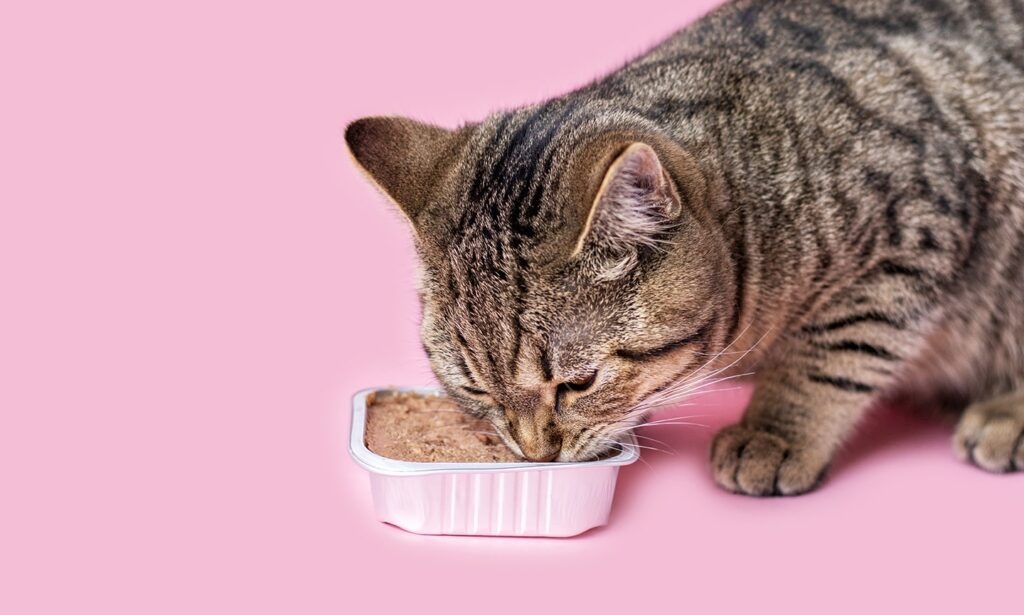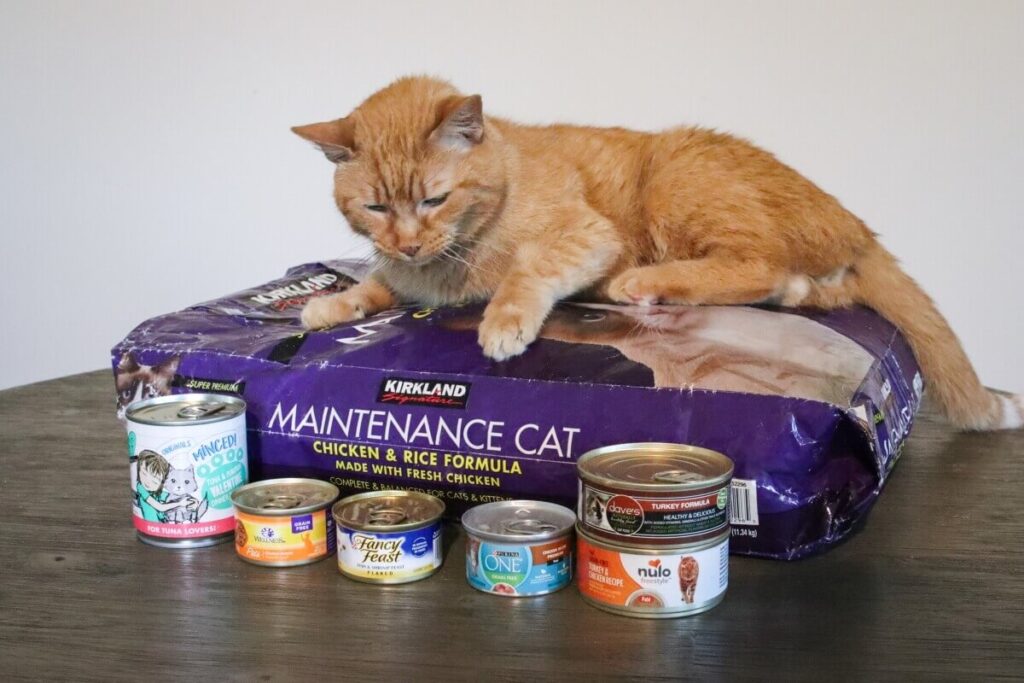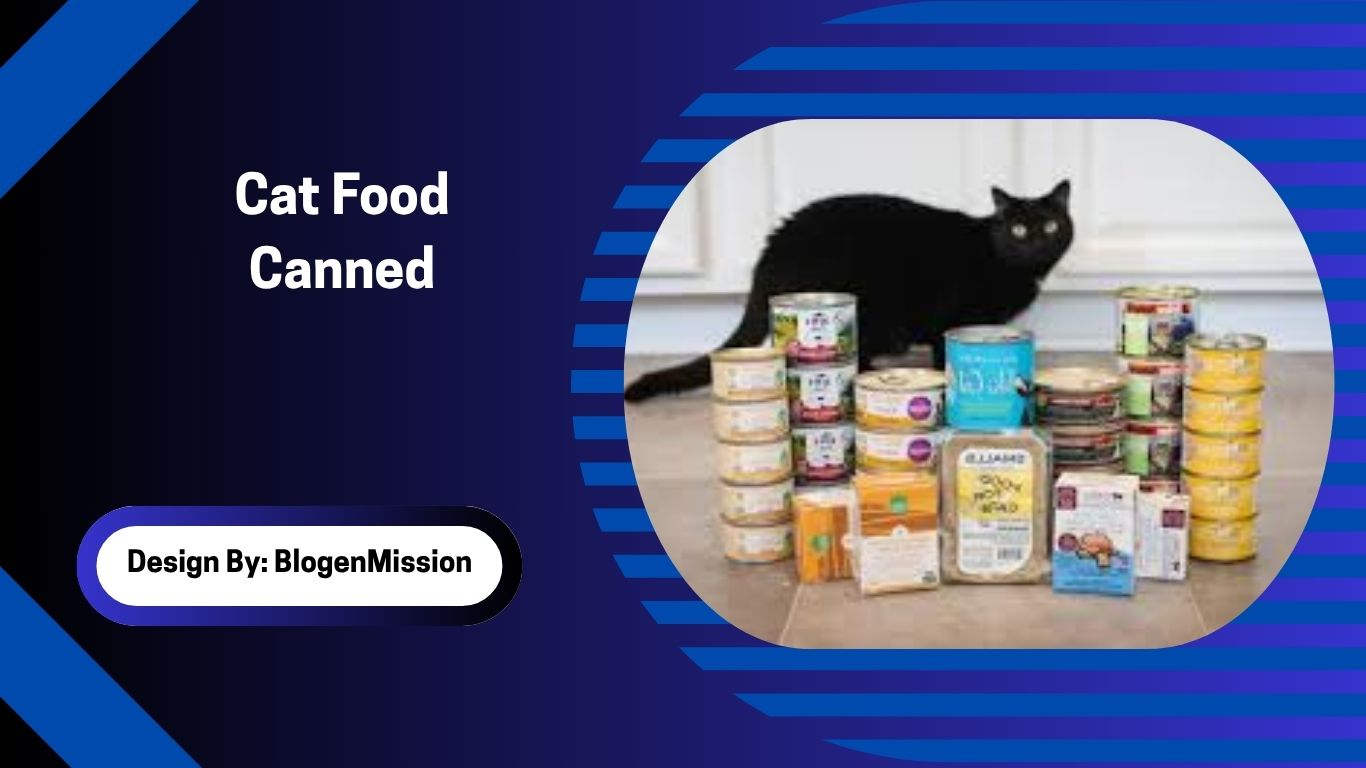Canned cat food offers superior hydration, higher protein, and better digestibility than dry kibble. It’s ideal for kittens, adults, seniors, and cats with sensitivities, making it a healthier, vet-recommended choice.
Choosing the right canned cat food can be confusing. Between wet cat food, premium canned cat food, grain-free canned cat food, and canned food for senior cats, what’s best for your feline friend? This guide delves into the benefits of canned diets, how they compare to dry kibble, and what to look for across stages—from kittens to seniors and dietary needs like sensitive stomachs or weight control.
Wet vs. Dry: Is Canned Cat Food Better Than Dry?
One of the most common questions is: “Is canned cat food better than dry?” While both types have pros and cons, canned wet food often offers advantages:
- Higher moisture content (75–80%), ideal for hydration
- Lower carbohydrate content, supporting urinary and metabolic health
- Typically higher protein quality and fewer fillers
However, canned food can be pricier and less convenient. For most cats—especially indoor cats without free water access—wet food tends to be the healthier option.
Benefits of Canned Cat Food

🥫 Superior Hydration & Urinary Health
Cats evolved to get moisture from prey. Moist cat food ensures they consume enough water, supporting kidney function and reducing urinary issues—a common ailment in older cats.
🍗 High-Quality Protein & Nutrition
High protein cat food, especially made with real meat like chicken canned cat food or tuna canned cat food, provides essential amino acids critical for lean muscle and overall health.
🍃 Reduced Fillers & Better Digestibility
Look for canned cat food without fillers—such as corn, soy, or wheat. These can irritate digestion or cause allergies. Instead, choose all-natural canned cat food with short, recognizable ingredient lists.
🐱 Ideal for Sensitive Stomachs, Weight Control & Age-Based Needs
- Canned cat food for sensitive stomachs helps avoid digestive upsets.
- Best canned cat food for weight management offers high protein and controlled calories.
- Options like canned food for senior cats or canned prescription cat food are fortified to support joint health, kidney care, or diabetes.
Tailoring Your Cat’s Diet: Life Stage & Special Needs
🐾 Canned Kitten Food
“Kittens need extra protein and fat for growth.” Canned kitten food helps support immune and bone development with easily digestible nutrients.
⚖️ Adult & Indoor Cats
Best wet cat food for indoor cats focuses on balanced protein, controlled calories, and hydration to prevent obesity and sluggish digestion.
🧓 Senior Cats
Canned food for senior cats often includes joint supplements like glucosamine, omega fatty acids, plus softer textures to accommodate dental issues.
🩺 Veterinary Prescriptions
Canned prescription cat food is formulated to manage medical conditions — such as kidney disease, IBD, or diabetes — requiring vet oversight.
What to Look for in Canned Cat Food?
When choosing canned food, focus on:
- Named animal proteins (e.g. chicken, turkey, tuna) as first ingredients.
- Minimal carbohydrate levels (“low‑carb canned food for cats”).
- Moisture-rich products for hydration.
- No added fillers or artificial preservatives.
- AAFCO statement ensuring nutritional completeness.
Other helpful labels: “grain‑free,” “all‑natural,” “veterinarian recommended canned cat food.”
Feeding Tips & Safety
🕒 Serving Frequency & Portion Control
Most adult cats do well with 2–3 small meals daily. For weight management, measure servings and adjust based on ideal adult weight.
⏳ Storage & Shelf Life
Once opened, how long does canned cat food last after opening? Transfer leftovers to a sealed container and refrigerate. Use within 2–3 days to prevent spoilage.
⚠️ Transitioning Brands
When switching foods, blend new and old over 7 days. Watch for digestive upset or stool changes.
Common Questions
- Should cats eat wet food every day? Yes — daily wet food ensures hydration and supports urinary and digestive health, especially for indoor or senior cats.
- Is canned food healthier for cats? Generally, yes. High moisture, protein, and digestibility make it superior for feline dietary needs.
Popular Types of Canned Cat Food

- Tuna canned cat food: high protein, omega‑3 rich, but use sparingly due to mercury.
- Chicken canned cat food: versatile, appealing, and lean.
- Premium canned cat food: higher quality meat, no fillers, higher price. Brands often include wellness blends or grain-free lines.
- Grain-free canned cat food: no corn or wheat, good for allergy-prone cats, but confirm taurine adequacy.
- Soft cat food in cans: pâtés and chunks for dental or senior cats needing gentler textures.
Choosing the Right Brand
Consider these trusted brands recommended by veterinarians:
- Wellness CORE Grain-Free
- Royal Canin Veterinary Diets
- Blue Buffalo Basics (limited ingredients)
- Tiki Cat (wet food specialist)
- Purina Pro Plan Veterinary Diets
Always look for vet endorsements and AAFCO statements when selecting formula.
Budget-Friendly vs. Premium Options
Lower-cost brands may still be healthy if they prioritize meat over grains. Premium options offer human-grade ingredients and targeted nutrition but at higher price points. Choose based on your budget and your cat’s unique needs.
FAQs:
1. What makes canned cat food better for senior cats?
Canned food is easier to chew and more hydrating, helping prevent kidney issues in aging cats. Many formulas also include joint-supporting nutrients like glucosamine and omega fatty acids for overall wellness.
2. Can I feed my cat canned food only?
Yes, many vets recommend feeding only canned food due to its high moisture and protein. Just ensure the brand is nutritionally complete and AAFCO-approved for your cat’s life stage and needs.
3. How do I store leftover canned cat food?
After opening, transfer leftovers to an airtight container and refrigerate. Use within 2–3 days to maintain freshness and prevent bacterial growth. Avoid leaving canned food out for more than 20 minutes.
4. Are grain-free canned cat foods always better?
Not necessarily. While grain-free canned cat foods reduce allergy risk, they must still contain essential nutrients like taurine. Choose quality over trend by reviewing ingredients and consulting your vet for dietary advice.
5. Is canned cat food good for cats with sensitive stomachs?
Yes, wet food is often easier to digest and less processed. Choose limited-ingredient or prescription canned formulas specifically designed for sensitive digestion, avoiding artificial additives, grains, and by-products.
Conclusion:
Canned cat food is a smart nutritional choice for cats at every life stage. Its high moisture content, quality protein, and digestibility make it ideal for supporting hydration, weight management, and sensitive stomachs. With various options—like grain-free, prescription, or senior-specific formulas—owners can tailor diets to meet individual needs. Whether you’re raising a kitten or caring for an aging feline, choosing the right wet food ensures a healthier, happier life. Always consult your vet when switching diets or addressing medical concerns.
Related Post:
- Do Indoor Cats Get Worms – Worm Risks in House Cats!
- Do Hotels Allow Cats – Complete Guide for Traveling Cat Owners!
- Canned Cat Food For Diabetic Cats – Complete Guide!
